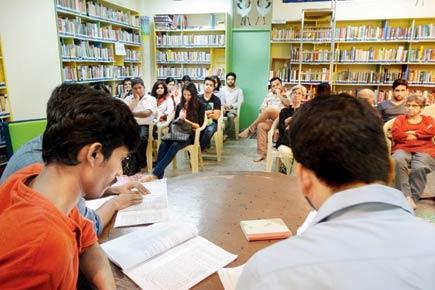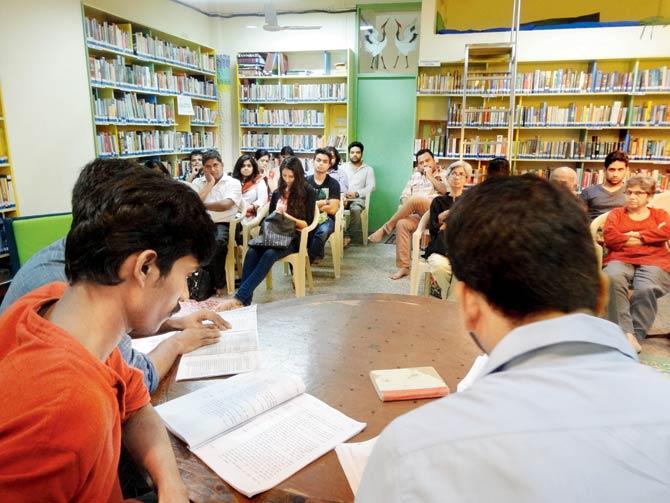Head to a Mumbai library for a play reading that offers insight into the rich writing tradition of Marathi theatre

If you've always wanted to know more about modern Marathi playwrights and their iconic works, you might want to head to Bandra’s MCubed Library today for an insightful reading session of Sandha, a landmark play penned by Dr Rajeev Naik.
ADVERTISEMENT

A play reading by Tamaasha Theatre
“It is representative of the new generation of playwriting that blossomed around the Chhabildas experimental theatre movement during the 1980s and 1990s,” informs Sapan Saran, co-founder of city-based Tamaasha Theatre that will conduct the reading.
The company’s co-founder and theatre director Sunil Shanbag, incidentally, staged this play’s first production in Hindi, titled Chit Ya Pat, in 1988. Simultaneously, producer Ajit Bhure staged it in Marathi with young Renuka Shahane and Tushar Dalvi.
This reading marks the ninth session in the company’s six-month long Reading Theatre programme, that began in June, wherein two plays are read every month. “The idea is to read modern playwrights from CT Khanolkar to Chetan Datar. The sessions are free and open to all.
The response has been very encouraging, and the programme has managed to cultivate a regular audience,” shares Saran. Their upcoming readings include Datar’s Sawlya (November 12), Jayant Pawar’s Adhantar (November 27) and GP Deshpande’s Udhvast Dharmashaala (December 11).
What’s in store?
Each three-hour session consists of introducing the play, setting its context, reading it, sharing notes of its performance history along with a moderated discussion (in Hindi and English for the convenience of non-Marathi speaking audience).
City-based actors Poornanand, Siddhesh Shelar, Shubhangi Bhujbal and Swarali Marathe will be reading Sandha. “These are pure readings, without an attempt to make them performance-oriented. It’s important to just hear the plays and the words.
However, in order to make sure that the readings are efficient, we’ve roped in actors who come with the required discipline, rigour and craft,” shares Saran. These actors form a study group and meet three to four times before each reading. They also undertake research for each play with guidance from Shanbag, who moderates the sessions.
 Subscribe today by clicking the link and stay updated with the latest news!" Click here!
Subscribe today by clicking the link and stay updated with the latest news!" Click here!






